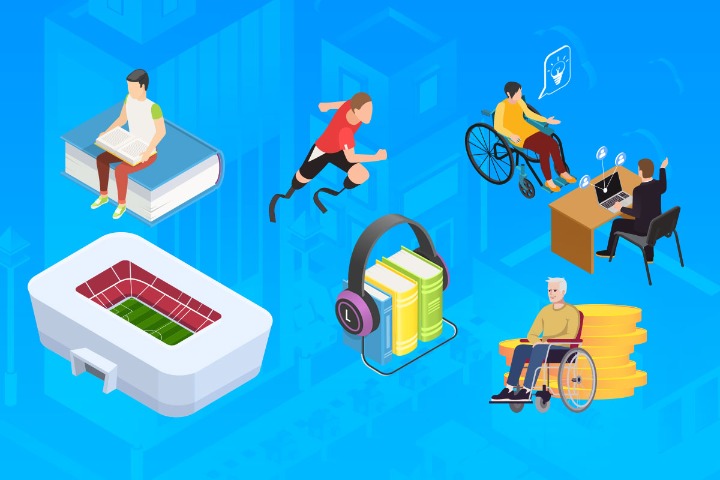Prompt action ensures residents benefit from elevated quality of life

Chinese government agencies have pledged to strictly implement the law on building a barrier-free environment as they strive to make daily life more convenient for the elderly and people with disabilities.
Some government departments took measures to improve construction of accessible facilities and services even before the new law took effect on Friday.
For example, to provide the elderly with easier access to the internet, the Ministry of Industry and Information Technology ordered phone and television manufacturers to simplify the operation of their products and services by optimizing technologies to ensure elderly users can also hail cars, book hotels and shop online.
Shao Daoxin, deputy head of the ministry's information and communication bureau, said, "We've asked 1,735 websites and apps popular with the elderly and the disabled to provide voice or manual services to help this special group of people.
"Thanks to these services, some elderly and visually-challenged users of navigation apps can now avoid steps, slopes and obstacles, while others can now hail taxis via travel or transportation apps."
Shao said more than 100 million smart TVs and mobile phones had been transformed with a simplified operation mode by the end of last year, adding that the ministry has also issued several guidelines on promoting information accessibility and providing nursing care for the elderly through technologies.
As some seniors face difficulty using stairs in old low-rise buildings, the Ministry of Housing and Urban-Rural Development has stepped up efforts since 2018 to solve the problem by installing elevators, even though this is not an easy task.
In China, apartments built before 1990 usually comprise six or seven floors, but do not have elevators.
Before 2018, some 5,000 elevators were installed in such buildings nationwide. When the installation of elevators was written into the Government Work Report, the number reached 5,200, said Liu Lifeng, deputy head of the ministry's construction department.
Last year, more than 30,000 elevators were installed in old low-rise apartments, he said, adding that the figure for January to July this year reached 18,000.
Liu said it is difficult for all residents in a building to agree on installing an elevator, as people on low floors usually want more light and a quiet living environment, while those on high floors require easy access to stairs.
"We've made every effort to protect the basic interests of the elderly and the disabled by seeking a balance between people living on different floors," he added.
The China Disabled Persons' Federation has contributed to the construction of accessible facilities and services by improving talent education, training and international exchanges.
Zhou Jian, director of the federation's rights protection department, said it has helped more than 70 institutes in universities and academies strengthen research on building a barrier-free environment.
Moreover, accessibility-related courses will be added to science and technology, architecture, transportation and computer majors, he said.
The federation and the ministries promised to help legislators introduce the new law to more people through lectures and videos, and enhance the legislation by issuing regulations and policies.




